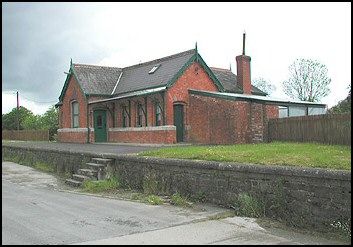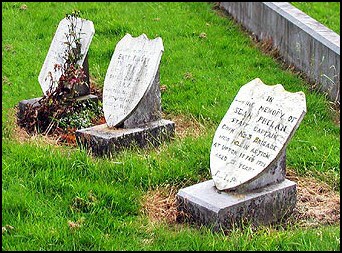|
Reverse for West Cork Brigade at Upton Ambush (Irish War of Independence - Third Cork Brigade) |
|
|
On 11th. February 1921, a successful ambush had been carried out on the
Mallow-Tralee train at Drishanebeg, within the Second Cork Brigade area. A party of British
troops travelling on the train had been attacked and
defeated, one soldier being killed and several wounded. The attacking
party suffered no casualties and had succeeded in capturing fifteen rifles and
several hundred rounds of ammunition. Following this,
intelligence officer Florence O'Donoghue informed the
headquarters of the Third (West Cork) Brigade that a party of British troops, probably twelve to fifteen
in number, would leave Cork for Bantry on the 9.30 a.m. train on the 15th. February.
Arrangements were made to send a coded message by telephone to Bandon on the
morning of the 15th. to confirm the departure of the troops and giving details
of their
numbers and their location on the train. Brigade Commander Charlie
Hurley considered that the risk to civilians on the train would not be excessive
so the ambush was decided upon. The location chosen was The passenger platform of
Arriving at the station only
a few
minutes before the train was due to arrive Charlie Hurley ordered the
attacking party into position. Pat O'Sullivan and John Butler were stationed at
the toilets next to the waiting room, O'Sullivan armed with two .45 revolvers and
Butler with a rifle.
Flor Begley and Sean Phelan, both with Colt automatics, were in the
waiting-room. Paddy O'Leary was positioned at the wicket gate and Sean
Hartnett at the gable-end of the signal cabin, both armed with rifles. Charlie
himself took up a position on the footbridge that spanned the line at the
western end of the platforms, and was armed with a Peter the Painter with
stock. On the opposite side of the
station Batt Falvey and Neilus Begley were posted at the goods store; Denis
Desmond and Dan O'Mahony behind the low wall, and
Paddy Coakley at a window upstairs in the public house. Finally, Tom Kelleher
and Denis Doolan held positions behind a wall at the entrance to the goods
yard. These seven men were armed with rifles. An attacking party of fourteen men in
total were within the station and a number of
local scouts were posted close by. Soon the noise of the
approaching train could be heard. However, there had been an unforeseen
development. A party of close on fifty soldiers from Kinsale Barracks had boarded the
train at Kinsale junction (a station between Cork and Upton) and positioned
themselves among the civilian passengers. A valiant effort was made to warn the ambush party
by Bill Hartnett, a brother of Sean who was waiting to attack the train at As the train pulled
into the station the attackers opened fire. This was immediately returned
by the soldiers who poured out on to the platform. When Charlie Hurley saw that the enemy
force now greatly outnumbered his own small group he gave the order for
withdrawal, shouting to those on the south side to fall back towards the level
crossing and gate house to the west of the station. His own gun jammed after
the first shot, and as he jumped down from the bridge, he received a bullet
wound in the face and also sprained his ankle. Among the six on the north
side casualties were heavy. Pat O'Sullivan was mortally wounded and Sean Phelan
was shot down as he tried to escape through the waiting room window. Flor Begley,
Paddy O'Leary, John Butler, and Sean Hartnett succeeded in getting clear although the latter was wounded. On the southern side Batt Falvey was shot
through the head and died instantly. The others fell back to the level
crossing, helped by the protecting fire of Tom Kelleher and Denis Doolan. When
Doolan came upon the wounded Dan O'Mahony he
carried him for over a mile to safety. Although O'Mahony
recovered under treatment he died a few years later as a result of his wounds.
Tom Kelleher went to the
assistance of Charlie Hurley who was seriously wounded and had
no chance of escaping on his own. Kelleher practically carried him
from the scene of the ambush, Hurley repeatedly
begging his rescuer to leave him and make good his own escape. The courageous
Kelleher insisted on bringing his
wounded companion to safety and by late afternoon the pair
reached the comparative security of Patsy Sheehan's house at Kilmore, where
they rested for some time. They then moved on to
Cloughduv where Hurley recuperated for some time. They
eventually reached Brigade Headquarters at
Denny Ford's of Ballymurphy. Pat O'Sullivan, although seriously
wounded, managed to escape from his position on the
station platform and under the protection of a deep trench dragged himself
out of the danger zone. On the following
day Jack Kenefick of the First Cork Brigade conveyed O'Sullivan to the North
Infirmary in Cork city but O'Sullivan died shortly after his arrival there.
This engagement at The bodies of Sean Phelan,
Batt Falvey and Pat
O'Sullivan were laid to rest in the Republican plot at St Finbarr's
cemetery in |
||||||||||||||



